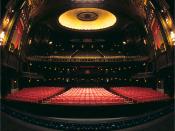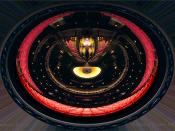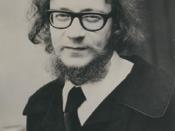"Why do we sacrifice so much energy to our art? Not in order to teach others but to learn with them what our existence, our organism, our personal and unrepeatable experience have to give us; to learn to break down the barriers which surround us and to free ourselves from the breaks which hold us back, from the lies about ourselves which we manufacture daily for ourselves and for others; to destroy the limitations caused by our ignorance and lack of courage; in short, to fill the emptiness in us: to fulfill ourselves." Art is neither a state of the soul (in the sense of some extraordinary, unpredictable moment of inspiration) nor a state of man (in the sense of a profession or social function). Art is an evolution, an uplifting which enables us to emerge from darkness into a blaze of light.
We fight then to discover, to experience the truth about ourselves, to tear away the masks behind which we hide daily.
People see theatre as a place of provocation, a challenge the actor sets himself and also, indirectly, other people. Theatre only has a meaning if it allows people to transcend there own stereotyped vision, their general feelings and customs, our standards of judgment. This is so that we may experience what is real and if the audience and the actor can put themselves in a state of complete defenselessness they may unveil and discover themselves. In this way usually through shock it allows people to come out from behind their daily masks. People are then able, without hiding anything, to see themselves as what they sub consciously did not let themselves see previously.
Grotowski's work stressed the importance of the actor, and is known for a physically demanding style of theater bordering on dance choreography.


